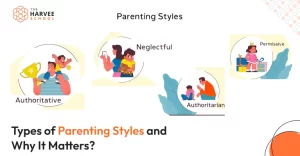How to Overcome Procrastination?
Are you constantly asking yourself, “How do I overcome procrastination?” As a student, this might be one of the most common questions you ask during exams, assignments, or even simple study sessions. You’re not alone.
Procrastination can sneak into your academic life and rob you of focus, productivity, and peace of mind. In this guide tailored specifically for students, we’ll explore practical, psychology-backed strategies to help you win the battle against procrastination and get back in control.
Understanding Procrastination
Before diving into solutions, let’s understand the problem. Procrastination shouldn’t be confused with laziness. They’re not the same. It’s an active process—you choose to do something else instead of the task you know you should be doing. For students, this can mean scrolling through social media instead of studying, or binge-watching shows instead of working on that essay. Often, it stems from fear of failure, lack of motivation, or feeling overwhelmed by the workload.
Why Students Struggle with Procrastination?
Students face unique challenges that make procrastination more tempting:
Information overload: With multiple subjects, deadlines, and exams, it’s easy to feel overwhelmed.
Digital distractions: Phones, games, and social media constantly compete for your attention.
Lack of structure: Many students don’t have a solid daily routine, making it harder to stay focused.
Fear of failure or perfectionism: High expectations can create a mental block that causes you to delay starting.
Once you understand these causes, you’re better equipped to figure out how to overcome procrastination as a student.
12 Powerful Tips on How to Overcome Procrastination
Break Down Tasks
If a task feels overwhelming, split it into smaller, manageable chunks. This technique helps you overcome laziness and procrastination by making the task less intimidating.
Use the Pomodoro Technique
Focus on your task for 25 minutes, then take a short 5-minute break After four cycles, take a longer break. This method is excellent for staying focused and helps you defeat procrastination.
Set SMART Goals
Specific, Measurable, Achievable, Relevant, and Time-bound goals help you stay clear on your objectives, reducing the tendency to delay.
Eliminate Distractions
Turn off phone notifications, block distracting websites, and create a clean study environment to help you stop laziness and procrastination.
Establish a Routine
Building a daily schedule can help train your brain to work at specific times, making it easier to conquer procrastination.
Prioritize Tasks
Use tools like the Eisenhower Matrix or simple to-do lists to identify what’s urgent and important. This clarity makes it easier to act.
Use Positive Reinforcement
Reward yourself after completing a task. Small incentives can keep you motivated and help you avoid procrastination and laziness.
Practice Self-Compassion
Don’t be too hard on yourself. Self-criticism can lead to avoidance behavior. Instead, encourage yourself positively.
Visualize Success
Imagine the sense of accomplishment and relief you’ll feel once your tasks are finally completed. Visualization can rewire your brain to crave productivity.
Stay Accountable
Talk about your goals with a friend. Accountability partners can help you stick to deadlines and stop procrastination.
Address Underlying Issues
Sometimes, procrastination is a sign of anxiety or low self-esteem. Talking to a counselor or therapist can help in solving procrastination.
Practice Mindfulness and Meditation
These practices improve focus and reduce anxiety, making it easier to deal with procrastination.
Procrastination Isn’t Laziness
It’s essential to separate procrastination from laziness. Laziness is the unwillingness to act, while procrastination is the delay of action despite knowing its importance. Understanding this distinction is key when you’re looking into how to stop laziness and procrastination.
How to Overcome Procrastination as a Student?
Use Campus Resources: Libraries, study centers, and academic counseling can offer the right environment and support.
Join Study Groups: Surround yourself with motivated peers who can inspire and push you to stay on track.
Use Digital Tools: Apps like Todoist, Notion, or Forest can help you manage your time better and keep distractions at bay.
Keep a Progress Journal: Track your daily wins and note what triggers your procrastination.
How to Quit Procrastination for Good?
Breaking free from procrastination is about forming sustainable habits, not quick fixes. With consistency and the right mindset, anyone can learn how to defeat procrastination and reach their full potential.
Final Thoughts
If you’ve been wondering, “How can I overcome procrastination?” or “How to deal with procrastination in everyday life?—remember, the moment you start looking for solutions, you’ve already taken the first big step forward. Start small, stay consistent, and be kind to yourself throughout the process. You have the tools; now it’s time to act.






